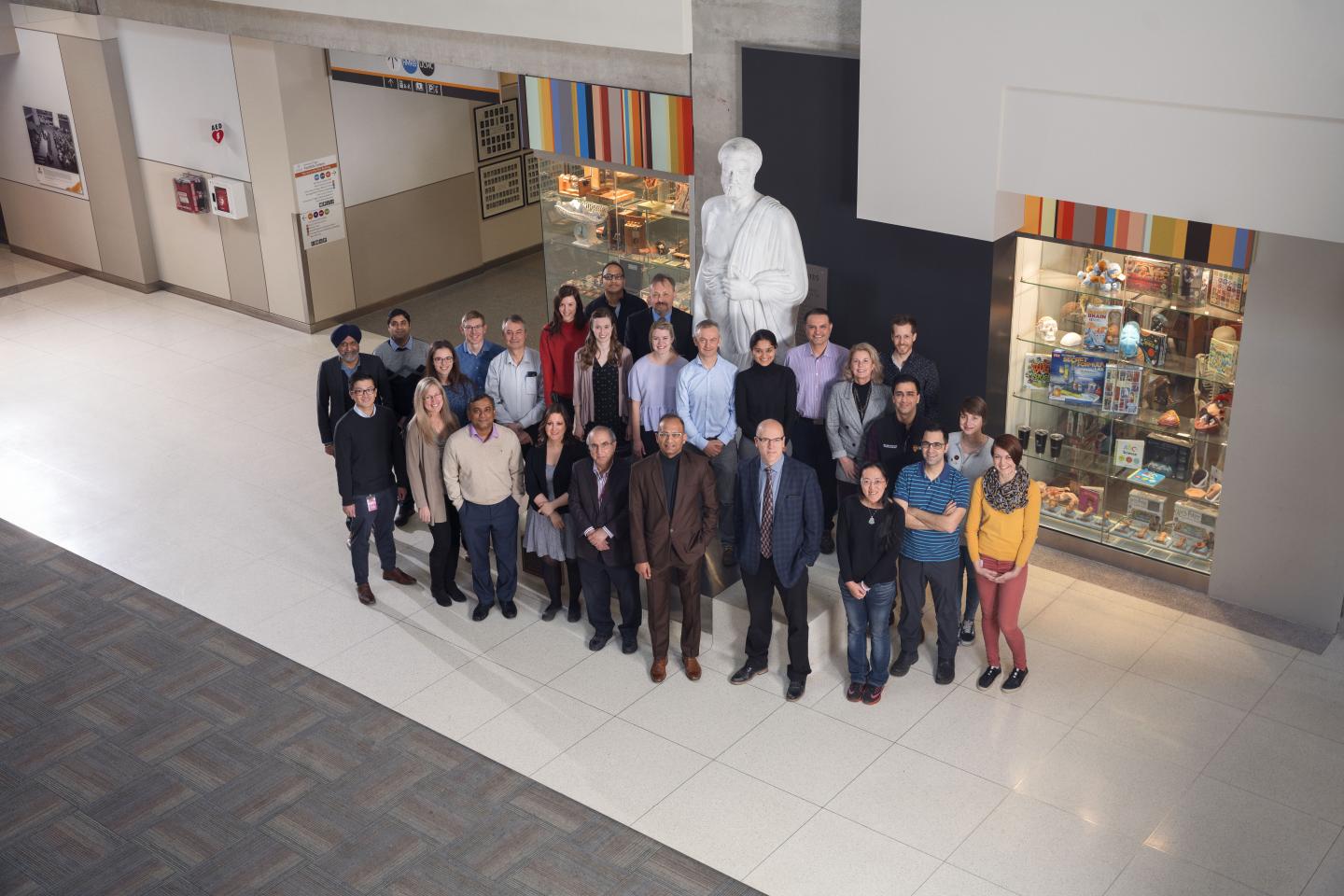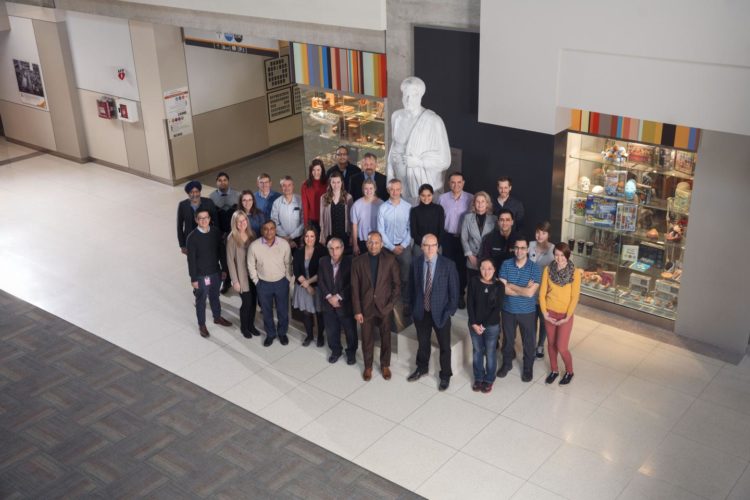UCalgary led international study shows promising results for neuroprotection by combining endovascular therapy with nerinetide

Credit: Photo by Roth & Ramberg
After 50 years of research and the testing of over 1,000 drugs, there is new hope for preserving brain cells for a time after stroke. Treating acute ischemic stroke patients with an experimental neuroprotective drug, combined with a surgical procedure to remove the clot improves outcomes as shown by clinical trial results published today in The Lancet.
The multi-centre, double-blinded, randomized trial, led by a team at the Cumming School of Medicine’s (CSM) Hotchkiss Brain Institute and Alberta Health Services, investigates the use of the neuroprotective drug nerinetide, developed by NoNO Inc, in two scenarios in the same trial. In one scenario, nerinetide is given to patients in addition to the clot-busting drug alteplase. In the second scenario, patients who were not suitable for alteplase received only nerinetide. Both groups of patients had concurrent endovascular treatment (EVT) to remove the clot.
“Compared to placebo, almost 20 per cent more patients who received nerinetide along with endovascular treatment, but did not receive alteplase, recovered from a devastating stroke – a difference between paralysis and walking out of the hospital,” says Dr. Michael Hill, MD, a neurologist at Foothills Medical Centre (FMC) and professor in the departments of Clinical Neurosciences and Radiology at the CSM. “In the patients who received both drugs, the alteplase negated the benefits of the nerinetide.”
Hill says the study provides evidence of a biological pathway that protects brain cells from dying when they are deprived of blood flow. Nerinetide targets the final stage of the brain cell’s life by stopping the production of nitric oxide within the cell.
“We really believe this is a new scientific observation,” says Hill. “There is evidence nerinetide promotes brain cell survival, offering neuroprotection until we can extract the clot. It opens the door to a new way of treating stroke.”
Images of patients’ brains from the study show the expected size of the damage from the stroke is sizeably reduced when nerinetide is administered and EVT is performed among patients not concurrently receiving alteplase.
“After so many studies investigating neuroprotective drugs failed, we are extremely excited by these results,” says Dr. Mayank Goyal, MD, PhD, a neuroradiologist at the FMC, and clinical professor in the Department of Radiology at the CSM. “While nerinetide is not approved for use yet, it shows the potential of a new tool to promote recovery from stroke.”
Worldwide, 15 million people suffer a stroke each year – that’s one every nine minutes in Canada and every 90 seconds in the United States. The results can be devastating. Ischemic stroke, the most common, is caused by a clot in a blood vessel in the brain. The sudden loss of blood flow causes brain cells to die, which can permanently affect speech, vision, balance and movement.
The international trial enrolled 1,105 patients between March 2017 and August 2019 at centres in North America, Europe, Australia, and Asia – a global academic collaboration bringing together scientists, clinicians, funding agencies, and industry.
“The collaboration between NoNO Inc., the University of Calgary and investigators at 48 leading stroke hospitals around the world has shown how effective such an academic-industry partnership can be in running high-quality, foundational stroke trials that can lead to positive changes in clinical practice,” says Dr. Michael Tymianski, MD, PhD, CEO of NoNO Inc. and the inventor of nerinetide.
The results in the current study, called the ESCAPE-NA1 Trial, build on the success of the ESCAPE trial, in which the Calgary Stroke Program proved that a clot retrieval procedure known as EVT can dramatically improve patient outcomes after an acute ischemic stroke. During the procedure, a catheter is inserted in the groin and guided through blood vessels into the brain. A tiny metal mesh device is used to grab the clot and pull it out. The current study investigates whether administering nerinetide in addition to clot retrieval improves the patient’s ability to recover.
###
The study is supported by the Canadian Institutes of Health Research (CIHR), Alberta Innovates, and NoNO Inc. It was designed by the academic investigators (University of Calgary) and the sponsor (NoNO, Toronto, ON, Canada).
Dr. Hill is a member of the scientific advisory board for NoNO Inc. It is an unpaid position and he receives no financial benefit from the results.
Media Contact
Kelly Johnston
[email protected]
403-617-8691
Original Source
https:/
Related Journal Article
http://dx.





